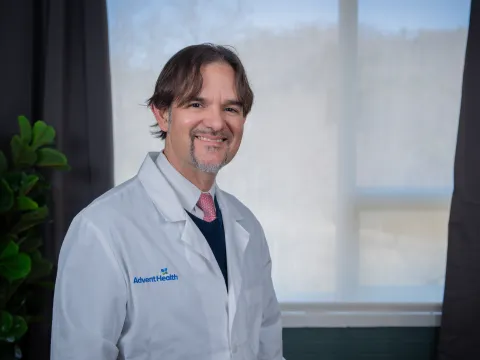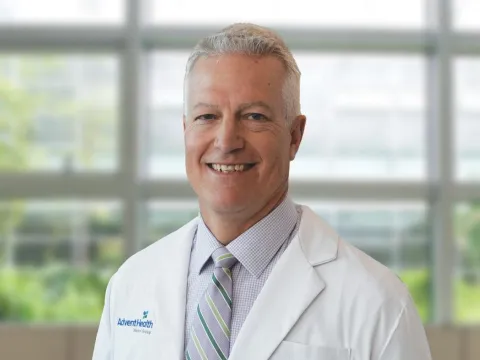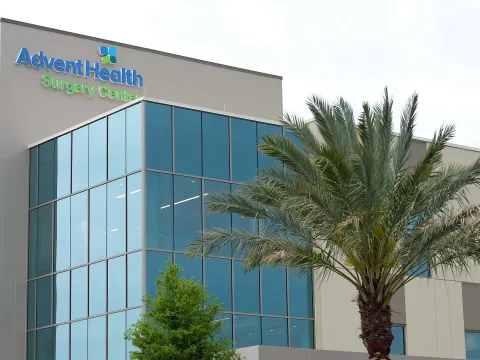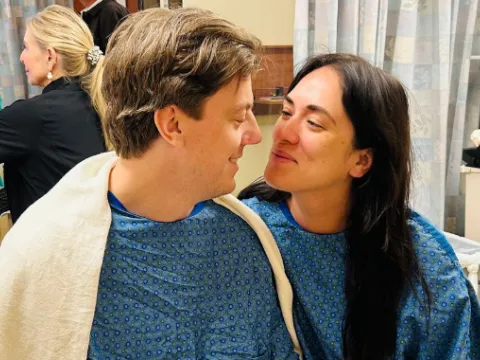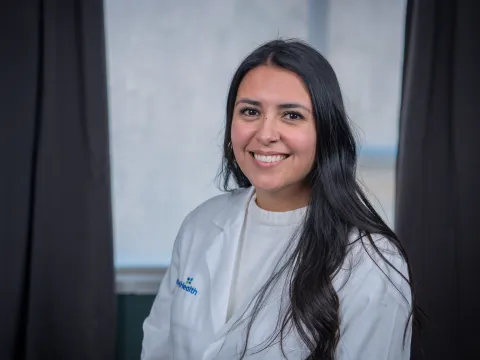- AdventHealth
February is National Cancer Prevention Month – the perfect time to reflect upon your daily habits and address any nutrient gaps in your diet. Dr. Yousuf Gaffar, an oncologist with AdventHealth Hematology and Oncology at Denver shares some insightful advice on how you can maintain a diet that could help prevent cancer.
The need for supplements varies based on age and health status. Generally, a well-balanced diet provides most of the necessary nutrients. It's important to tailor your diet to your individual needs. Be cautious of misinformation about supplements; if something sounds too good to be true, it probably is. Always discuss evidence-based recommendations and any supplements you're taking with your healthcare provider. Additionally, lifestyle changes can make a significant difference. Small steps like becoming more active, eating well, getting enough sleep, and practicing stress-relief techniques such as mindfulness can greatly improve your health.
Beneficial Supplements:
For most people, a well-balanced diet provides the necessary vitamins and minerals. A consideration of supplements should add to, but not substitute for a healthy diet.
There are a few key supplements that may be beneficial, particularly in certain situations:
- Magnesium: Important for muscle and nerve function, sleep, and energy production. Many people don’t get enough from their diet alone.
- Vitamin D: Essential for bone health, immune function, and potentially lowering cancer risk. Lower levels tend to be found in the northern hemisphere, even in sunnier areas such as in Colorado.
- Omega-3 Fatty Acids: Found in fish / fish oil supplements, omega-3s support heart health and may reduce inflammation. Some studies suggest they could play a role in reducing cancer risk.
- B Vitamins (B12 & Folate): Important for red cell production, energy metabolism and brain / nerve health. B12 is especially crucial for vegetarians and older adults.
- Probiotics: Help maintain gut health, which is closely linked to overall well-being, including immune function. There may be a link between the types of bacteria in the colon and cancer risk.
Age-Specific Supplement Needs:
There’s no universal age to start taking supplements, but needs change over time:
- In your late-teens, 20s and 30s: Most people can get adequate nutrients from food, but if your diet is lacking or you have specific concerns (e.g., low energy, gut health, or muscle recovery), you may benefit from supplements like vitamin D, omega-3s, or probiotics.
- In your 40s and 50s: Bone health becomes more of a priority, so calcium, vitamin D, and magnesium are important.
- 60s and beyond: B12 absorption decreases with age, so supplementation is often recommended. Omega-3s and vitamin D remain crucial.
As seen above, tailoring your supplement to your needs, including your age will maximize your potential benefit.
Healthy Foods to Include:
A nutrient-rich diet can help maintain or add energy, and stamina. A variety of foods in a well-rounded diet may provide health benefits.
Some great everyday foods include:
- Leafy greens (spinach, kale, arugula): Packed with vitamins, antioxidants and fiber.
- Berries (blueberries, strawberries, raspberries): High in antioxidants and anti-inflammatory compounds.
- Cruciferous vegetables (broccoli, Brussel sprouts, cauliflower): May help lower cancer risk by supporting detoxification.
Additional Tips:
- Exercise regularly –think of the abbreviation “FITT” – Frequency / Intensity / Time / Type of Exercise.
- Manage stress – this can be achieved with different activities such as mindfulness / meditation, exercise / yoga.
- Prioritize sleep – this can help manage your emotions and your cognition.
- Limit processed foods and added sugars – there has been much more attention paid to this and the role these foods may play in cancer risk, as well as preventing obesity related illnesses.
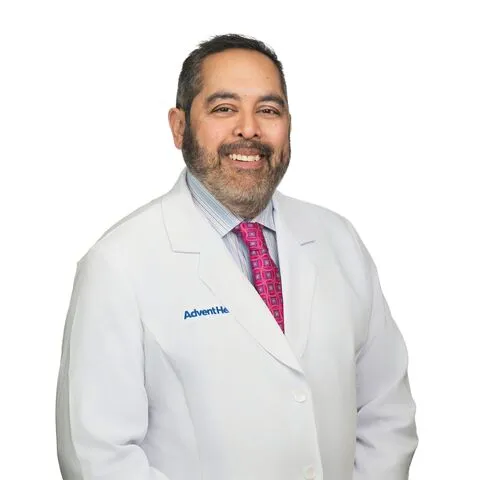
If you or a loved one is in need of cancer care, Dr. Yousuf Gaffar is dedicated to providing whole-person care to each of his patients. To learn more or to schedule an appointment, please visit: Yousuf Gaffar, MD | Hematology and Oncology | Denver, CO | AdventHealth
Recent News
Local leaders, officials, and construction workers gathered today to commemorate a major milestone in the expansion underway at AdventHealth Daytona Beach: placing the final steel beam.
AdventHealth is excited to introduce Eugenio L. Menendez, DO, FACP, to our community of care. He is joining the team at AdventHealth Medical Group Family Medicine at Hendersonville* following the...
AdventHealth Heart of Florida and AdventHealth Polk Foundation leaders are delighted to unveil a new courtesy visitor shuttle meant to enhance accessibility and comfort for patients.
Dr. Jeffrey Keen, a board-certified orthopedic surgeon specializing in adult reconstruction, orthopedic surgery, robotic-assisted surgery, and sports medicine, has returned to AdventHealth Medical...
In recognition of National Donate Life Month, nearly 300 transplant patients and their families enjoyed AdventHealth’s 2025 transplant reunion.
By managing ASCs as distinct entities with tailored operations, financial structures, and physician partnerships, the East Florida Division is fostering collaboration, efficiency, and growth.
According to the National Kidney Foundation, more than 101,000 people are currently on the organ transplant list in need of a new kidney. However, only about 17,000 transplants happen each year —...
The AdventHealth Board of Directors has appointed David Banks as the organization’s new president/CEO, effective immediately.
AdventHealth is excited to welcome Shalom Littrell, LCSWA, to its team at AdventHealth Medical Group Psychiatry at Medical Office Building*. Littrell is a Licensed Clinical Social Work Associate and...
The AdventHealth Heathbrook ER will have 12 exam rooms, including a resuscitation room, a bariatric room, an isolation room, obstetrics-friendly room and pediatric-friendly rooms.
Ming Wu, MD -- a family medicine doctor with AdventHealth Littleton -- talks about the ways to lessen the impact of seasonal allergies this spring.
The East Florida Division is forming strong partnerships with independent physicians, driving mutual success and improving hospital throughput.


